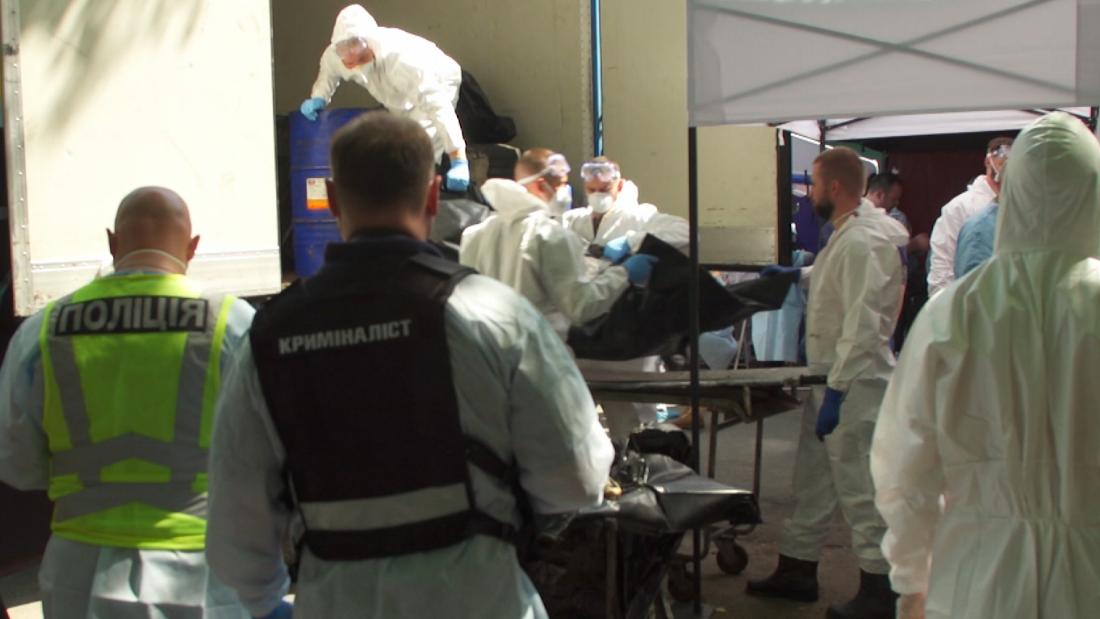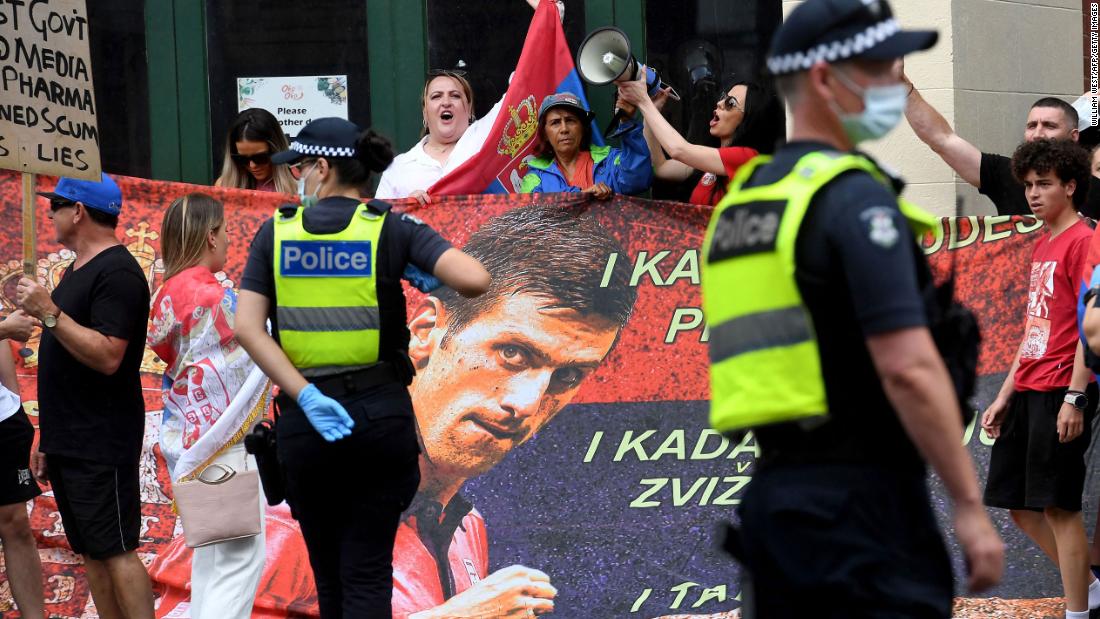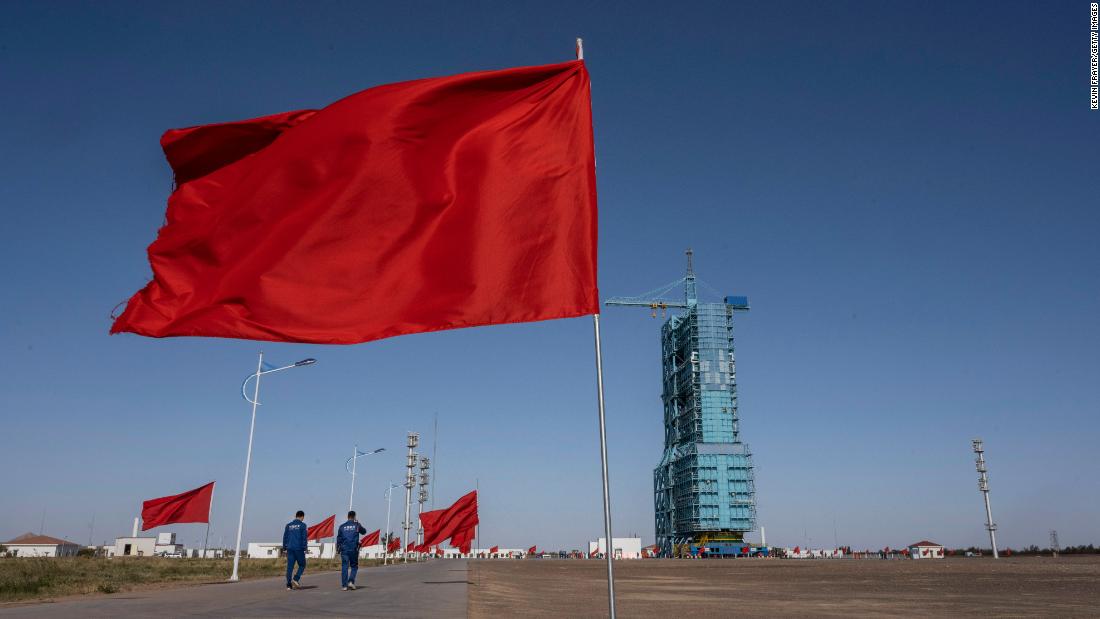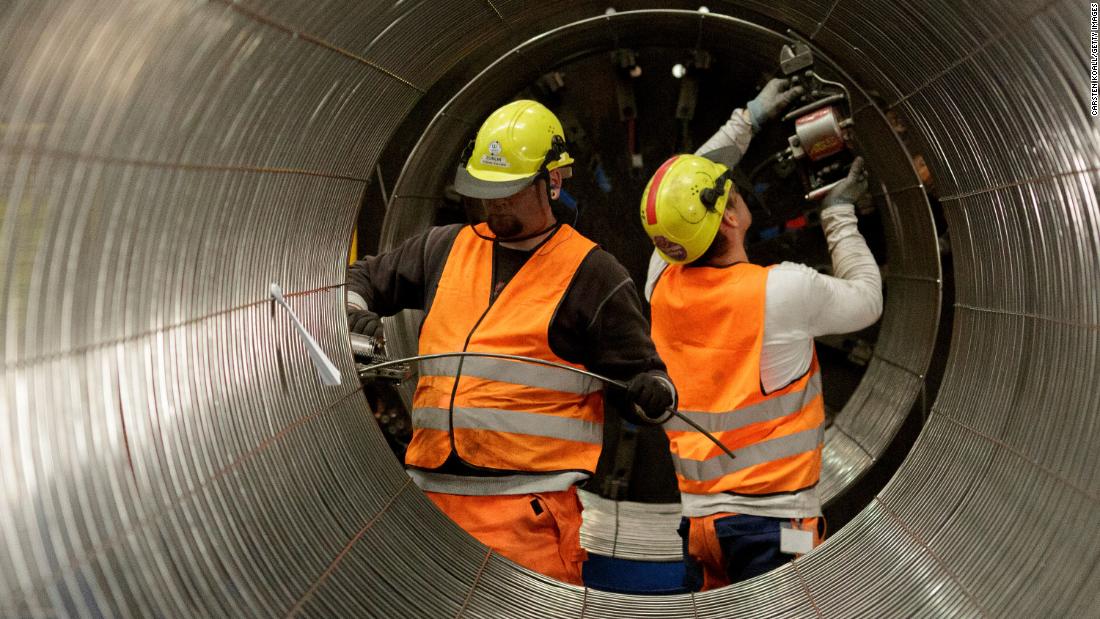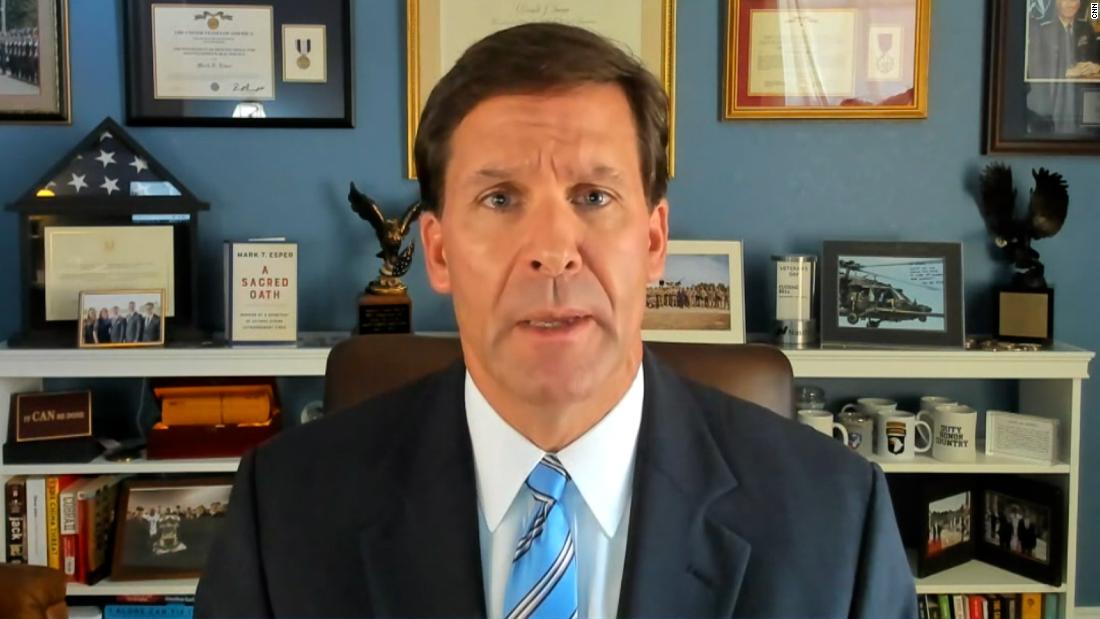Russia to build attack drones for Ukraine war with the help of Iran, intel assessment says
1 min agoOur live coverage of Russia's war in Ukraine has moved here.7 hr 22 min agoUkraine imposes additional power outages due to plummeting temperaturesFrom CNN's Lindsay IsaacUkrainian energy suppliers were forced to impose additional blackouts on Monday in addition to scheduled ones as temperatures across the country plummeted. According to Ukrainian President Volodymyr Zelensky, the blackouts are due to a higher level of demand for electricity than the country’s war-damaged infrastructure can provide. During a daily address to the nation, Zelensky appealed to regional and local authorities to double down on the message to residents to consume electricity. Temperatures in Kyiv are expected to hover around zero Celsius (32 degrees Fahrenheit) for at least the next 10 days.Yasno, Ukraine’s biggest energy supplier, said emergency outages affected almost a million households and businesses. Serhiy Kovalenko, CEO of Yasno, said that engineers are working to restore power before even further cold weather sets in – but warned that Ukrainians will likely have to live with outages until at least the end of March. The best-case scenario, barring new attacks on the grid, was that power shortages could be evenly distributed throughout the country, he said in a post on the company's Facebook page. In the event of severe damage to the grid by Russian attacks, he warned people can expect “not only hourly stabilization power outages but also emergency ones, when there may be no light for a very long time." Kovalenko urged citizens to be prepared for the worst-case scenario and to stock up on warm clothes, blankets and supplies in case of long blackouts.10 hr 52 min agoUkrainian officials urge Kherson residents to evacuate for winter From Yulia KesaievaA resident boards an evacuation train on Monday, November 21, in Kherson, Ukraine. (Chris McGrath/Getty Images)Residents of the southern Ukrainian city of Kherson are to be evacuated to other regions of the country with working electricity and more intact infrastructure for the winter — specifically women, children, the elderly and other vulnerable people, according to officials.The Black Sea port city, which was recently liberated from Russian troops, is without electricity and authorities say the city’s infrastructure has been too damaged for citizens to survive winter. Iryna Vereshchuk, the vice prime minister for the Minister of Reintegration of Temporarily Occupied Territories, said Ukraine will offer free evacuation to citizens of Kherson to “Kryvyi Rih, Mykolaiv and Odesa cities, with possible further relocation to Kirovohrad region, Khmelnytskyi region or western regions of Ukraine.” Ukrainian authorities will offer free accommodation, food and medical attention to those who leave, she said. 11 hr 32 min agoUN nuclear watchdog: No "immediate" safety concerns at Zaporizhzhia plant after latest shelling From CNN's Amy Cassidy in LondonA team of independent inspectors from the UN’s nuclear watchdog on Monday reported “no immediate nuclear safety or security concerns” at Ukraine's Zaporizhzhia nuclear power plant after shelling over the weekend, according to an official statement.International Atomic Energy Agency (IAEA) Director General Rafael Grossi in a statement said the team assessed the damage to the site Monday and concluded that “despite the severity of the shelling – key equipment remained intact and there were no immediate nuclear safety or security concerns."All six reactors at Europe’s largest nuclear power station are “stable” and the team confirmed the integrity of fuel and radioactive waste in their storage facilities, the statement continues.However, “widespread damage” was still observed at the site, it said, which maintenance staff have already begun to repair. Grossi described the damage as “a major cause of concern as it clearly demonstrates the sheer intensity of the attacks.”Non-radioactive leaks were caused by damage to condensate storage tanks and the team observed “several impacts on the main road along the plant’s reactors as well as on a site railway that is now out of service,” the IAEA statement said.The team also observed a “pressurised air pipeline hit by shrapnel, two impacts on the roof of a special auxiliary building, minor visible damage to a sprinkler charging pipeline, as well as two impacts in a guardhouse area.” No further attacks had taken place in the plant's vicinity overnight or throughout Monday so far, “though there had been shelling in the area of the nearby city of Enerhodar and the industrial area,” according to the IAEA team.11 hr 54 min agoFrench president discusses situation at Zaporizhzhia nuclear plant in "urgent" call with Zelensky From CNN’s Joseph AtamanFrench President Emmanuel Macron said on Monday that he held an “urgent call” with Ukrainian President Volodymyr Zelensky about the security situation at the nuclear power plant at Zaporizhzhia. Macron informed Zelensky of his “deep concern” following recent st
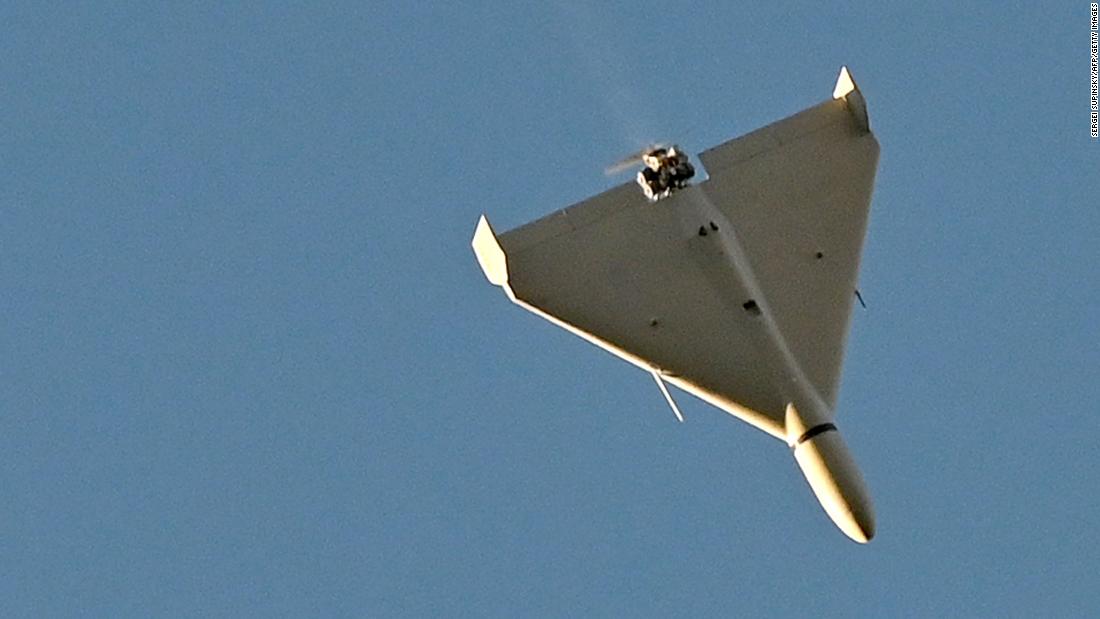
Our live coverage of Russia's war in Ukraine has moved here.
Ukraine imposes additional power outages due to plummeting temperatures
From CNN's Lindsay Isaac
Ukrainian energy suppliers were forced to impose additional blackouts on Monday in addition to scheduled ones as temperatures across the country plummeted.
According to Ukrainian President Volodymyr Zelensky, the blackouts are due to a higher level of demand for electricity than the country’s war-damaged infrastructure can provide. During a daily address to the nation, Zelensky appealed to regional and local authorities to double down on the message to residents to consume electricity.
Temperatures in Kyiv are expected to hover around zero Celsius (32 degrees Fahrenheit) for at least the next 10 days.
Yasno, Ukraine’s biggest energy supplier, said emergency outages affected almost a million households and businesses.
Serhiy Kovalenko, CEO of Yasno, said that engineers are working to restore power before even further cold weather sets in – but warned that Ukrainians will likely have to live with outages until at least the end of March.
The best-case scenario, barring new attacks on the grid, was that power shortages could be evenly distributed throughout the country, he said in a post on the company's Facebook page.
In the event of severe damage to the grid by Russian attacks, he warned people can expect “not only hourly stabilization power outages but also emergency ones, when there may be no light for a very long time."
Kovalenko urged citizens to be prepared for the worst-case scenario and to stock up on warm clothes, blankets and supplies in case of long blackouts.
Ukrainian officials urge Kherson residents to evacuate for winter
From Yulia Kesaieva
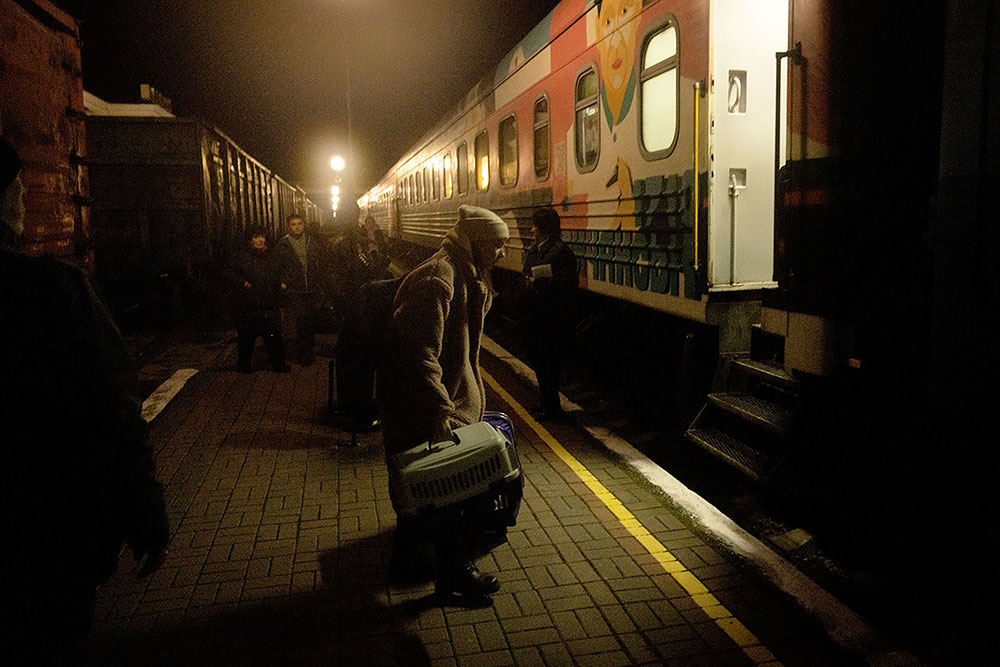
Residents of the southern Ukrainian city of Kherson are to be evacuated to other regions of the country with working electricity and more intact infrastructure for the winter — specifically women, children, the elderly and other vulnerable people, according to officials.
The Black Sea port city, which was recently liberated from Russian troops, is without electricity and authorities say the city’s infrastructure has been too damaged for citizens to survive winter.
Iryna Vereshchuk, the vice prime minister for the Minister of Reintegration of Temporarily Occupied Territories, said Ukraine will offer free evacuation to citizens of Kherson to “Kryvyi Rih, Mykolaiv and Odesa cities, with possible further relocation to Kirovohrad region, Khmelnytskyi region or western regions of Ukraine.”
Ukrainian authorities will offer free accommodation, food and medical attention to those who leave, she said.
UN nuclear watchdog: No "immediate" safety concerns at Zaporizhzhia plant after latest shelling
From CNN's Amy Cassidy in London
A team of independent inspectors from the UN’s nuclear watchdog on Monday reported “no immediate nuclear safety or security concerns” at Ukraine's Zaporizhzhia nuclear power plant after shelling over the weekend, according to an official statement.
International Atomic Energy Agency (IAEA) Director General Rafael Grossi in a statement said the team assessed the damage to the site Monday and concluded that “despite the severity of the shelling – key equipment remained intact and there were no immediate nuclear safety or security concerns."
All six reactors at Europe’s largest nuclear power station are “stable” and the team confirmed the integrity of fuel and radioactive waste in their storage facilities, the statement continues.
However, “widespread damage” was still observed at the site, it said, which maintenance staff have already begun to repair. Grossi described the damage as “a major cause of concern as it clearly demonstrates the sheer intensity of the attacks.”
Non-radioactive leaks were caused by damage to condensate storage tanks and the team observed “several impacts on the main road along the plant’s reactors as well as on a site railway that is now out of service,” the IAEA statement said.
The team also observed a “pressurised air pipeline hit by shrapnel, two impacts on the roof of a special auxiliary building, minor visible damage to a sprinkler charging pipeline, as well as two impacts in a guardhouse area.”
No further attacks had taken place in the plant's vicinity overnight or throughout Monday so far, “though there had been shelling in the area of the nearby city of Enerhodar and the industrial area,” according to the IAEA team.
French president discusses situation at Zaporizhzhia nuclear plant in "urgent" call with Zelensky
From CNN’s Joseph Ataman
French President Emmanuel Macron said on Monday that he held an “urgent call” with Ukrainian President Volodymyr Zelensky about the security situation at the nuclear power plant at Zaporizhzhia.
Macron informed Zelensky of his “deep concern” following recent strikes in and around the site, according to a readout of the call. Macron told reporters on Monday that a “threat” still hangs over the plant.
The French president also spoke with the chief of International Atomic Energy Agency, Rafael Grossi, on Sunday to discuss the plant and the pursuit of the demilitarization of the site, according to the Elysee Palace.
Some background: There has been frequent shelling in and around the plant and more powerful explosions were heard there over the weekend, the IAEA said on Sunday. Russian and Ukrainian officials have blamed each other for recent shelling at the plant.
The head of Russia's nuclear energy agency Rosatom, Alexey Likhachev, said Monday the power plant is “at risk of a nuclear accident."
IAEA said its team of experts were planning to conduct an assessment of the shelling impact on the site on Monday.
US official: There's "mounting evidence" of "systemic war crimes" by Russian troops in Ukraine
From CNN's Jennifer Hansler
There is “mounting evidence” of “systemic war crimes" being committed in "every region where Russia's forces have been deployed” in Ukraine, a top US State Department official said Monday.
“This includes deliberate, indiscriminate, and disproportionate attacks against the civilian population and elements of the civilian infrastructure,” abuses of civilians and prisoners of war and “efforts to cover up these crimes,” reports of executions, torture, and sexual violence, US Ambassador-at-Large for Global Criminal Justice Beth Van Schaack told reporters on a call.
Russia has been accused of deliberately targeting Ukraine’s civilian power grid in an effort to leave the civilian population without electricity and heat — an act that would amount to a war crime.
Van Schaack said it is difficult to determine particular individual strikes would be war crimes, noting that “each individual strike has to be evaluated as against whether there were military objectives in the vicinity, or whether these were purely civilian objects,” but said “there is a consistent pattern of attacks on civilians elements.”
Van Schaack also highlighted Russia’s “construction of a vast transnational infrastructure of filtration operations, to which thousands of Ukrainian citizens have now been subjected,” which is a violation of international law.
“There are compelling reports describing physical and psychological abuse, including summary executions, as part of the operations and the forcible transfer and deportation including thousands of Ukrainian children, who've been abducted and forcibly adopted by families within Russia,” she said.
The United States is supporting the International Criminal Court, the Ukrainian Office of the Prosecutor General — which “has already identified thousands of incidents that may constitute war crimes” — the UN Commission of Inquiry, a European joint investigative team, Van Schaack said.
Approximately 1 in 5 Ukrainians struggle to access medicine, WHO says
From CNN’s Eve Brennan in London
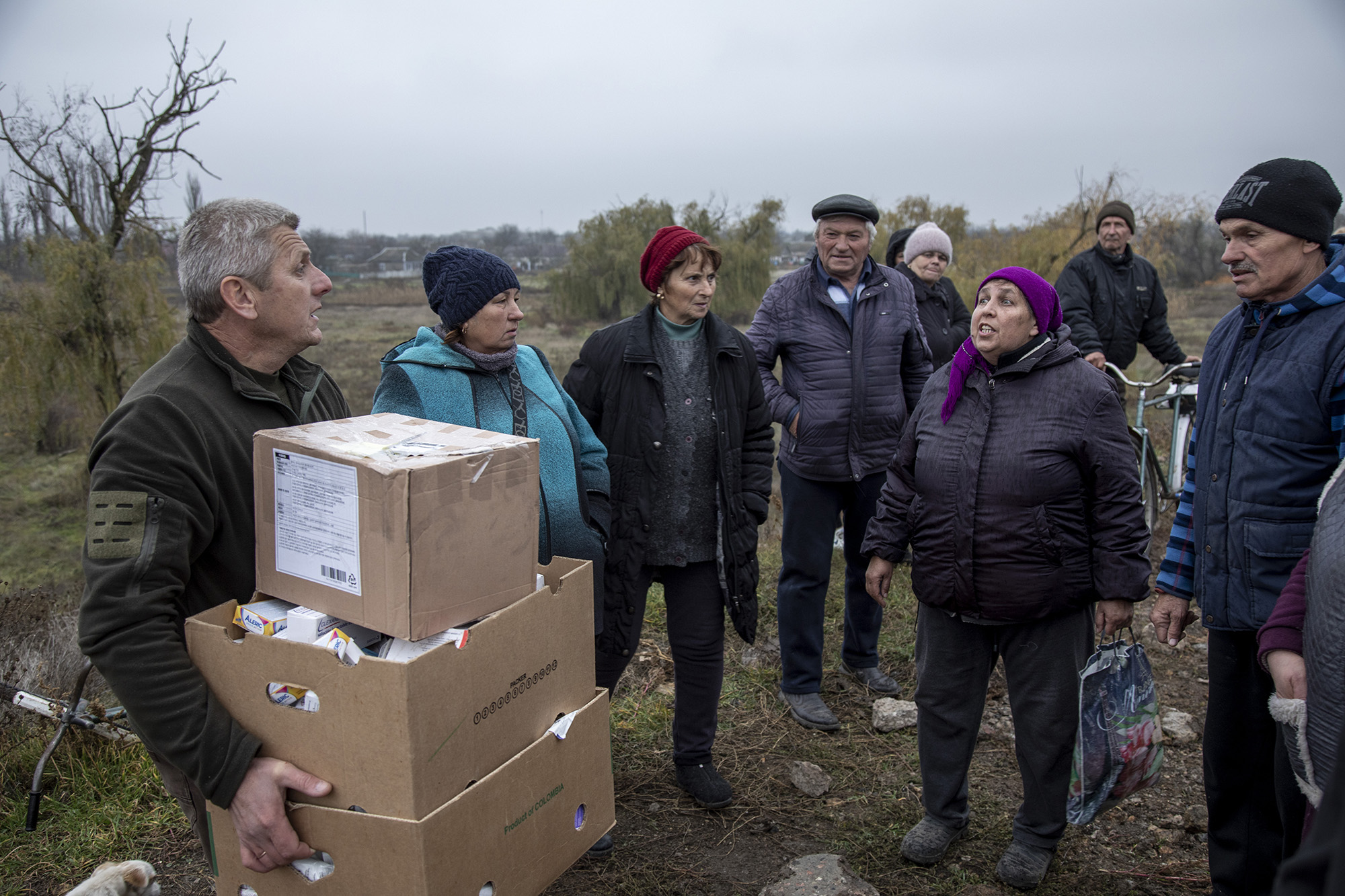
Around one out of five people in Ukraine have trouble getting access to medicine, Dr. Jarno Habicht, the World Health Organization's representative in Ukraine, said on Monday.
The problem is worse in Ukrainian regions occupied by Russia, with one in three people there not able to get the medicine they need, Habicht told a news briefing Monday in Kyiv.
This winter season and particularly snow which has already been witnessed in parts of Ukraine will pose a "formidable challenge" to the health system, he added.
Continuous attacks to the health infrastructure in Ukraine have also impacted availability to health services, such as medicine, Covid-19 vaccines, and machinery in hospital intensive care units, the WHO official said.
“I would say that with 50% of the civilian energy infrastructure being damaged or destroyed at a moment that there is a onset of a brutal winter where temperatures can plummet down to minus 20 degrees, that this is to be considered as the largest attack on health care on European soil since the Second World War,” WHO Europe’s regional director Hans Kluge said at the same news briefing.
The agency has so far verified some 703 attacks on health care facilities in Ukraine since the war began in February, according to WHO's latest data.
Russia will build attack drones for Ukraine war with the help of Iran, intelligent assessment says
From CNN's Kylie Atwood
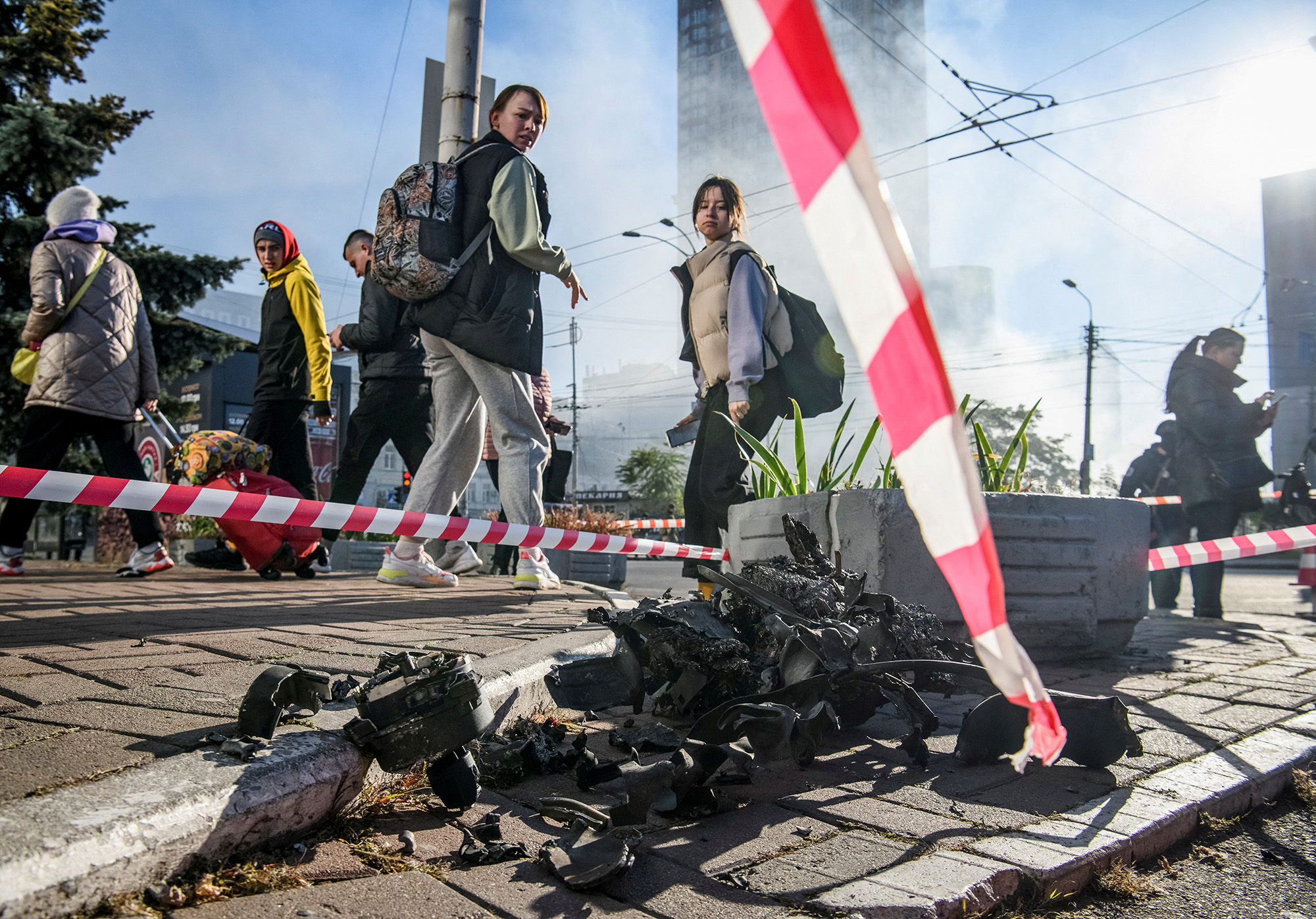
Iran and Russia have reached an agreement to begin the production of attack drones in Russia, according to a new intelligence assessment from a country that closely monitors Iran’s weapons program.
Iran is beginning to transfer blueprints and components for the drones to Russia after the initial agreement was struck earlier this month, said a source familiar with the assessment.
US officials have said that Russia has received hundreds of drones from Tehran which have had a deadly effect in Ukraine.
Earlier this month, the Iranian government acknowledged for the first time that it had sent a limited number of drones to Russia in the months before the start of its invasion of Ukraine.
“Some Western countries have accused Iran of helping the war in Ukraine by providing drones… we did provide a limited number of drones to Russia in the months before the start of the war in Ukraine,” Iran’s foreign minister Hossein Amirabdollahian told reporters in Tehran.
The goal is for Russia to produce thousands of new attack drones using Iranian components and blueprints, the source explained. If the two countries move ahead full-steam with their plan the expectation is that production could begin in a few months and its possible that the drones could be used by Russia on the battlefield in Ukraine next year, the source said.
It would be a move that would further cement the partnership between Tehran and Moscow and likely provoke significant anger from Ukraine and its western allies including the US.
The Washington Post first reported the agreement.
More background: The efforts come after CNN and other outlets reported that Iran was preparing to send weapons, including surface-to-surface short range ballistic missiles and more attack drones to Russia before the end of the year.
The source familiar with the assessment said those reports caused concern in Iran, which appears to have prompted the regime to rethink its approach with the plan for Russia to manufacture the drones rather than Iran directly transfer them.
The production process for the attack drones is not complicated when compared to the production of other weapons, the source explained.
CNN has asked the Russian embassy in Washington and the Iran mission at the United Nations for comment.
When asked for comment on the assessment, White House national security council spokesperson Adrienne Watson said, “Iran and Russia can lie to the world, but they can’t hide the facts: Tehran is helping kill Ukrainian civilians through the provision of weapons and assisting Russia in its operations. It’s another sign of how isolated both Iran and Russia are.”
Why this agreement matters: Drones have played a significant role in the conflict since Russia launched its full-scale invasion of Ukraine in late February, but their use has increased since the summer, when the United States and Kyiv say Moscow acquired drones from Iran. In recent weeks these Iranian drones have been used to target critical energy infrastructure in Ukraine.
The Iranian drones are known as a “loitering munition” because they are capable of circling for some time in an area identified as a potential target and only striking once an enemy asset is identified.
They are small, portable and can be easily launched, but their main advantage is that they are hard to detect and can be fired from a distance.
Ukrainian prosecutors detail allegations of torture in Kherson during Russian occupation
From CNN’s Olga Voitovych in Kyiv and Jo Shelley in London
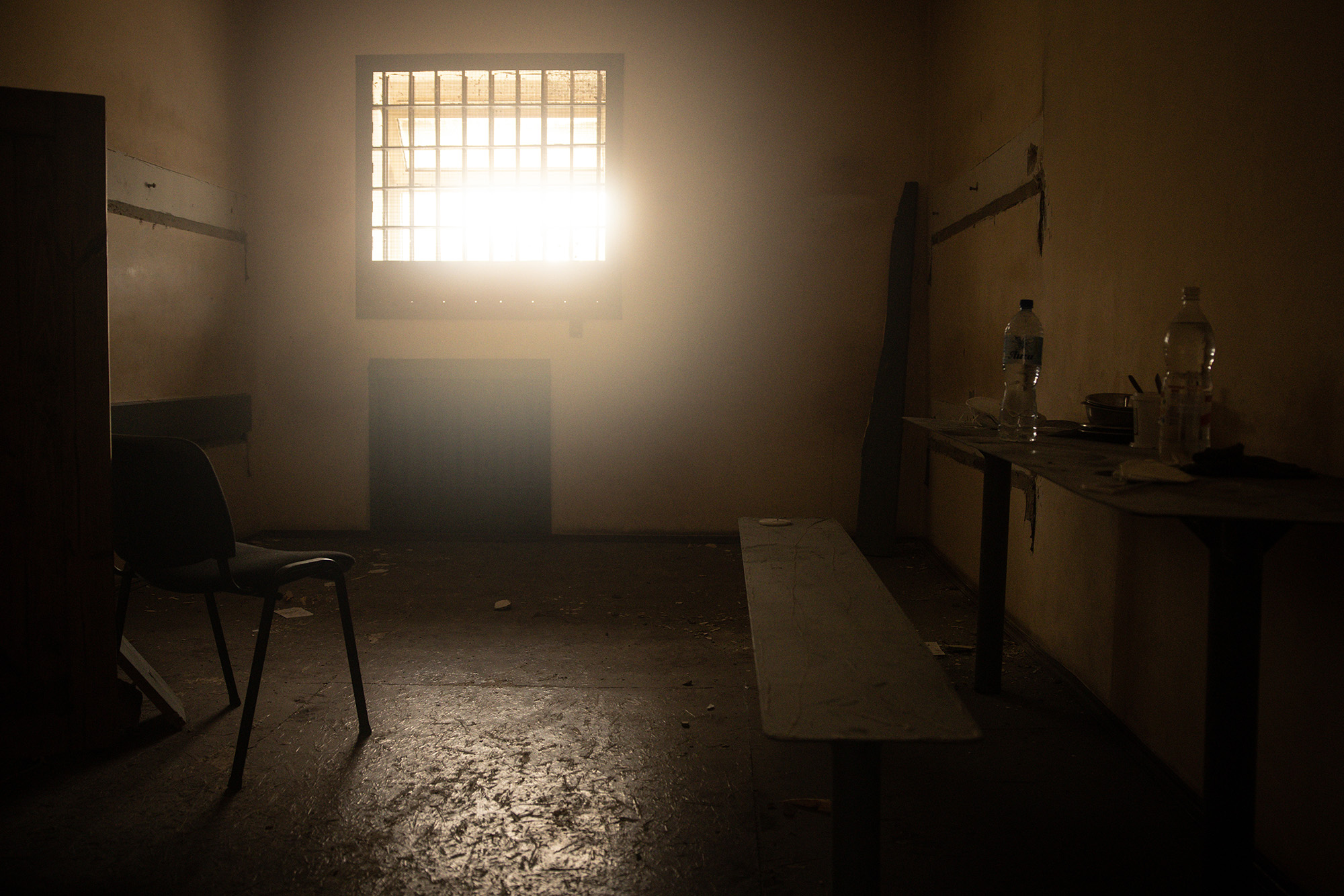
The office of the prosecutor in Ukraine’s southern Kherson region released a statement on Monday giving more details about what it said were four “torture chambers” discovered in the regional capital after it was liberated from Russian occupation earlier this month.
Ukrainian war crimes investigators have previously said they found 11 detention centers in the Kherson region and evidence of “torture” used in four of them.
Today’s statement said the four locations were in the city, “in the seized buildings of the Kherson temporary detention center, the pre-trial detention center and in one of the district police departments.”
“Parts of rubber truncheons, a wooden bat, a device used by the occupiers to torture civilians with electricity, an incandescent lamp and bullets from the walls were seized,” it said. “In the cells and basements, various methods of torture, physical and psychological violence were used against people.”
CNN cannot independently verify the claims.
Russia has previously denied allegations of war crimes and claimed its forces do not target civilians, despite extensive evidence gathered by international human rights experts, criminal investigators and international media in multiple locations.
Last week, Alexander Malkevich, a member of the Civic Chamber of the Russian Federation, an advisory body largely packed with pro-government loyalists, said that Kyiv was planning to accuse the Russian military of crimes in Kherson, in an interview on Russian state-owned Sputnik radio.
CNN’s Yulia Kesaieva and Katharina Krebs contributed reporting to this post.

 Landwebs
Landwebs 








